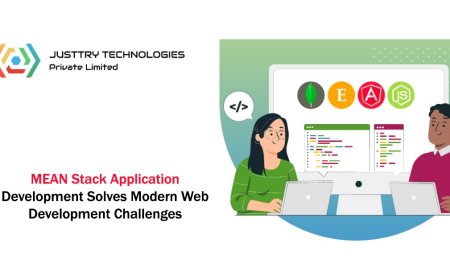How a Pharmaceutical Quality Management System Supports FDA and EMA Compliance
The FDA places stringent requirements on the pharmaceutical industry for maintaining drug safety, efficacy, and manufacturing consistency. From pre-market approval through post-market surveillance, companies must demonstrate complete control over product quality.

Meeting the Demands of Regulatory Frameworks with a Pharmaceutical Quality Management System
Pharmaceutical companies face ever-evolving regulatory landscapes governed by agencies such as the U.S. Food and Drug Administration (FDA) and the European Medicines Agency (EMA). A robust pharmaceutical quality management system is crucial for aligning internal processes with global compliance mandates. Modern QMS platforms help enforce quality controls, manage risks, and document every step of the product lifecycle to align with GxP expectations and the requirements outlined in 21 CFR Parts 210, 211, and 820.
The implementation of a pharmaceutical quality management system facilitates a shift from reactive compliance to proactive quality assurance, ensuring regulatory readiness and product safety from development through commercialization. By automating workflows and integrating data from multiple quality functions, the QMS system in pharma enhances traceability, minimizes human error, and streamlines audit preparedness.
FDA Expectations and the Role of Pharmaceutical QMS
The FDA places stringent requirements on the pharmaceutical industry for maintaining drug safety, efficacy, and manufacturing consistency. From pre-market approval through post-market surveillance, companies must demonstrate complete control over product quality. A pharmaceutical quality management system ensures that change control, deviation tracking, and CAPA are seamlessly executed with documented accountability.
QMS software not only supports batch record management and supplier qualification, but also integrates with lab information systems to ensure data integrityan area of heightened focus in FDA audits. A well-implemented pharmaceutical QMS system empowers quality and regulatory leaders to align operations with Part 11 compliance, maintain validated systems, and generate real-time reports for faster, data-driven decisions.
EMA Compliance: Document Control and Risk-Based Thinking
The EMA emphasizes a risk-based approach under the EU-GMP guidelines, requiring pharmaceutical manufacturers to demonstrate not only product quality but also an effective and documented QMS. A QMS in the pharmaceutical industry must support electronic documentation, version control, role-based access, and process validation.
By integrating a centralized document control module within the pharmaceutical quality management system, life sciences organizations can streamline creation, review, approval, and archival processes. QMS software aligned with Annex 11 of EMA guidelines ensures electronic records are secure, traceable, and available for regulatory review without delay. This not only improves regulatory confidence but also enhances operational efficiency across all global sites.
Aligning Change Control and CAPA in a QMS System in Pharma
One of the pillars of an effective pharmaceutical QMS is the integration of change control and CAPA. These systems, if disconnected or managed manually, create a fragmented environment prone to compliance gaps. A pharmaceutical quality management system unifies change control with deviation tracking, enabling automated impact assessments, escalations, and approvals.
CAPA workflows are mapped in alignment with both FDA and EMA guidelines, with full traceability from investigation through effectiveness checks. Pharmaceutical QMS platforms with built-in analytics support root cause analysis, recurring issue detection, and continuous improvement initiatives. This structure reduces regulatory risk while promoting a culture of sustained quality.
Supplier Quality and Audits Under a Pharmaceutical QMS
Suppliers play a critical role in pharmaceutical manufacturing, and regulatory bodies are increasingly holding companies accountable for their third-party relationships. A QMS system in pharma ensures suppliers are qualified, monitored, and audited according to internal and regulatory standards.
With modules for supplier performance tracking, audit scheduling, and non-conformance management, pharmaceutical quality management systems reduce the burden of manually managing supplier data. Dashboards and KPIs help QA teams make informed decisions, while integrated audit trails support documentation integrity in both internal and external inspections.
Leveraging QMS Software for Training and Competency
Human error remains a leading cause of regulatory non-compliance. QMS software in the pharmaceutical industry provides a structured platform to manage training records, role-based curriculum assignments, and employee qualification tracking. Integration with SOPs ensures that personnel are not only trained but also assessed for competency against updated quality procedures.
The pharmaceutical QMS ensures that all training activities are linked to quality events, such as a new CAPA, procedural updates, or risk mitigation tasks. Automated notifications, test results, and digital signatures make training audit-ready while reducing administrative overhead. This integrated learning approach supports both FDA and EMA expectations for workforce competency.
Data Integrity and Digital Validation in the Pharmaceutical QMS
Both FDA and EMA have emphasized data integrity as a cornerstone of compliance. A modern pharmaceutical quality management system ensures data is complete, consistent, and accurate throughout its lifecycle. Role-based access, audit trails, electronic signatures, and secure storage are essential components of the system.
Moreover, digital validation of QMS software ensures that systems meet regulatory expectations for reliability and reproducibility. From user requirement specifications to operational and performance qualification, the validation process must be fully documented and accessible for inspection. QMS software vendors supporting the pharmaceutical industry must deliver validated solutions out of the box or provide streamlined validation toolkits.
Post-Market Surveillance and Regulatory Reporting
A pharmaceutical QMS must also support post-market activities such as adverse event reporting, complaint management, and periodic safety updates. Regulatory authorities expect timely, transparent, and data-backed submissions. Integrated platforms ensure that complaint records, investigation timelines, and corrective actions are aligned and easily traceable.
Pharmaceutical quality management systems support automated reporting to authorities such as the FDAs FAERS or EMAs EudraVigilance. They also ensure that safety signals are escalated, trends are analyzed, and stakeholders are informed proactively. This capability reduces regulatory risk while reinforcing product safety.
Future-Proofing Compliance with Scalable QMS Software
The regulatory landscape continues to evolve with greater emphasis on digitalization, data security, and harmonized global compliance. A scalable and cloud-based pharmaceutical QMS platform enables companies to respond to regulatory updates, expand into new markets, and integrate emerging technologies such as AI and IoT.
QMS systems in the pharmaceutical industry must support multi-site operations, localization of SOPs, and real-time collaboration across geographies. Pharmaceutical QMS platforms that leverage advanced analytics and machine learning offer predictive insights, enabling proactive risk mitigation and strategic quality planning.
Why ComplianceQuest is Essential for 2025 and Beyond
As the pharmaceutical industry navigates increasing complexity in compliance and innovation, choosing the right pharmaceutical quality management system is more critical than ever. ComplianceQuest offers an enterprise-grade, cloud-based QMS software platform purpose-built to align with FDA, EMA, and ICH guidelines. With end-to-end modules for document control, CAPA, change management, supplier quality, and audit readiness, ComplianceQuest empowers companies to achieve global compliance, drive operational excellence, and accelerate go-to-market timelines.
In 2025 and beyond, pharmaceutical companies need intelligent, integrated, and scalable QMS systems to maintain trust, avoid costly recalls, and meet the expectations of both regulators and patients. ComplianceQuest not only addresses todays compliance requirements but also equips quality leaders with tools to innovate, adapt, and lead confidently into the future.





























